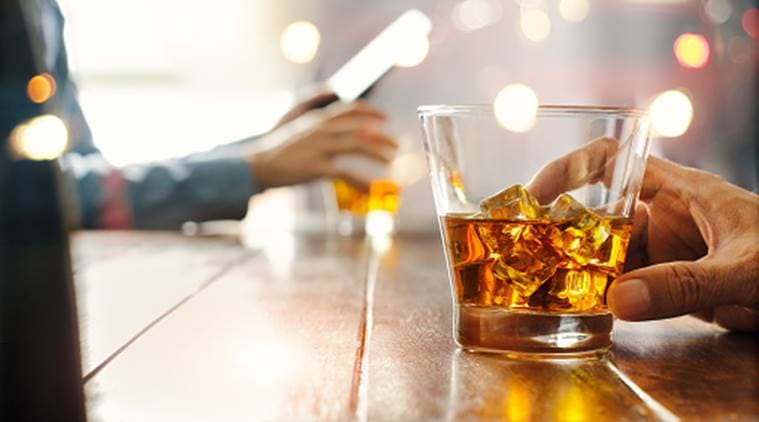Alcohol withdrawal symptoms can range between mild to severe that could be both physical because of high dependence, and psychological.

Regular users of alcohol are likely to experience some sort of withdrawal symptoms if they do not get to drink — a situation some could be facing during the lockdown. The symptoms may vary according to one’s drinking habit. This means that the symptoms could be more significant for heavy drinkers.
Alcohol withdrawal symptoms
“Alcohol withdrawal symptoms, depending on the amount you had consumed in the last couple of weeks, can start sometimes as early as two hours after the last drink. More commonly, it would start six hours after the last drink. The effect peaks between six-72 hours from your last drink. In some cases, it can also last up to two to four weeks, Dr Suranjit Chatterjee, senior consultant, internal medicine, Indraprastha Apollo Hospital, told indianexpress.com.
Alcohol withdrawal symptoms can range between mild and severe and it could be both physical because of high dependence, and psychological, explained Dr Samir Parikh, director and head, department of mental health and behavioral sciences, Fortis Healthcare. “For the second category, our advice is to use the opportunity to quit drinking. We need to inspire positivity in people. Some people, however, may require medical attention,” he said.

Among the common physical symptoms are restlessness, higher blood pressure, insomnia, headache, nausea, vomiting, palpitation, tremors and decreased appetite. Psychological symptoms can be anxiety, mood swings or irritability. Heavy drinkers who may have had to stop drinking suddenly may experience major withdrawal symptoms, which include seizures and hallucinations, stated the doctors.
Read| How I kicked my drinking problem
How to cope with withdrawal symptoms
Ideally, all those who consume alcohol on a regular basis and are experiencing the above symptoms should talk to a doctor.
“Yoga, meditation, proper nutrition, investing time in hobbies, and interacting with family members and friends are some of the ways you can divert your attention, in case you experience minor symptoms,” Dr Chatterjee advised. But it is also advised that you consult your doctor who can guide you on how to go about it. “That’s because typically people who are experiencing these symptoms are long-term users and may also have liver issues or other related health issues,” added Dr Parikh.
Read| Quitting alcohol easier than trying to control drinking: Study
The doctor may or not prescribe medication to cope with the symptoms. “We generally would not recommend medication unless the condition is severe. Withdrawal symptoms sometimes warrant benzodiazepines or sleeping pills which is not advisable unless necessary. If the symptoms last beyond two-three days, you should speak to a doctor through teleconsultation or video calling. “But sometimes, withdrawal symptoms also require hospitalisation, that is, if the person goes into a state of delirium, has hallucinations or convulsions or is not able to eat and drink.” said Dr Chatterjee.
? The Indian Express is now on Telegram. Click here to join our channel (@indianexpress) and stay updated with the latest headlines
For all the latest Lifestyle News, download Indian Express App.
Source: Read Full Article



